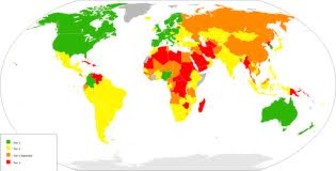Government Grants
Business Grants
Home Owner Programs
Federal Programs
About Us
Corrections_Training and Staff Development
To develop technical training teams to aid in the development of seminars, workshops, and training programs within the several States and with the State and local agencies which work with prisoners, parolees, probationers, and other offenders.
- Corrections_Research and Evaluation and Policy Formulation
- Corrections_Technical Assistance/Clearinghouse
Examples of Funded Projects
(1) Training for correctional agency trainers; (2) strategic management training for high-level correctional administrators; (3) management training for managers of community residential centers; institutions; and (4) management training for jail administrators and sheriffs.
- Networking and Professional Development of State and Large Urban System Healthcare Administrators
- Safety Matters: Relationships in Women’s Facilities
- Crisis Intervention Team Training Curriculum Enhancement
- Reentry Employment Series- Training and Coaching Facilitation
- Jail Administration Training and Technical Assistance
The Department of Justice enforces the law and defends the interest of the United States, ensuring public safety against threats foreign and domestic; providing Federal leadership in preventing and controlling crime; seeking just punishment for those guilty of unlawful pursuits; and ensuring fair and impartial administration of justice for all Americans.
Chambers RD, Aurora, CO 80011.
Telephone: (303) 365-4400.
Toll-Free: (800) 995-6429.
Fax: (303) 365-4455.
NOTE: All applications are to be sent to the NIC Washington office.
Program Accomplishments
Over 63,000 practitioners in adult corrections were provided training through NIC activities (Including Video Conference and E-Learning) during fiscal year 2007.
Uses and Use Restrictions
Provides assistance for upgrading the operation of correctional programs at State and local levels.
Services are available to the entire range of correctional agencies, including probation, parole, institutions, jails, and community programs.
Eligibility Requirements
Applicant Eligibility
States, general units of local government, as well as public and private agencies, educational institutions, organizations, and individuals involved in the development, implementation or operation of correctional programs and services.
Beneficiary Eligibility
States, general units of local government involved in the development, implementation or operation of correctional programs and services.
Credentials/Documentation
Costs will be determined in accordance with OMB Circular No. A-87 for State and local governments; OMB Circular No. A-21 cost principles for educational institutions; and OMB Circular No. A-122 cost principles for nonprofit organizations.
Aplication and Award Process
Preapplication Coordination
When applying for cooperative agreements, the standard application forms as furnished by the Federal agency and required by OMB Circular No.
A-102 and OMB Circular No.
A-110 (as applicable) must be used for this program.
This program is excluded from coverage under E.O.
12372.
Application Procedures
For cooperative agreements, applicant submits proposal on Standard Form 424 - Federal Assistance. This program is subject to the provisions of OMB Circular Nos. A-102, A-110, A-133, and A-128. Environmental assessment is required for federally funded projects that are a major Federal action significantly affecting the human environment as defined in the National Environmental Policy Act of 1969.
Award Procedures
A formal application (Standard Form 424-Federal Assistance) is submitted to NIC. When it is determined that the project will be funded, a letter and award package are sent to the award recipient.
Deadlines
Deadlines for applications are given in the announcement of the project in the Federal Register.
Authorization
Juvenile Justice and Delinquency Prevention Act of 1974, as amended; Public Law 93-415, 18 U.S.C. 4351-4353.
Range of Approval/Disapproval Time
Approximately 90 days.
Appeals
Appeals may be made to the Director of NIC.
Renewals
Continuation cooperative agreements.
Assistance Considerations
Formula and Matching Requirements
None.
Length and Time Phasing of Assistance
Funds advanced as required.
Post Assistance Requirements
Reports
Monthly and quarterly financial reports, quarterly programmatic progress reports, and final evaluation and financial reports.
Audits
Full fiscal and program audits at close of cooperative agreement and on-site inspections as needed throughout the project.
Records
Cooperative agreement recipients must keep complete records on receipt and disposition of federal funds for at least 3 years after the submission of the final financial report.
Financial Information
Account Identification
15-1060-0-1-754.
Obigations
(Cooperative agreements and contracts) FY 07 $7,219,268; FY 08 est $6,500,000; and; FY 09 est $7,200,000.
Range and Average of Financial Assistance
$1,500 to $300,000; $100,000.
Regulations, Guidelines, and Literature
National Institute of Corrections Annual Program Plan. National Institute of Corrections: Financial Management Guidelines for Grantees. National Institute of Corrections Guideline Manual; Instructions for Applying for Federal Assistance.
Information Contacts
Regional or Local Office
For training information, contact Chief, NIC Academy Division, 791 N. Chambers RD, Aurora, CO 80011. Telephone: (303) 365-4400. Toll-Free: (800) 995-6429. Fax: (303) 365-4455. NOTE: All applications are to be sent to the NIC Washington office.
Headquarters Office
National Institute of Corrections, 320 First Street N.W., Room 5007, Washington, DC 20534. Telephone: (202) 307-3106. Toll-Free: (800) 995-6423. Fax: (202) 307-3361.
Criteria for Selecting Proposals
(1) Relatedness of proposed project to agency's mission, mandates, and program focuses; (2) quality and feasibility of project goals and objectives, design, implementation plan, and evaluation component when applicable; (3) past experience, qualifications, and capability of applicant to perform the proposed project; and (4) appropriateness of cost to perform proposed tasks.
Social Entrepreneurship
Spotlight
When it Comes to Social Enterprises, Failure is the Best Platform for Innovation

In the world of social enterprises, failure is a cringe-worthy moment nobody wants to talk about. But, social entrepreneurs can benefit from their failures.

